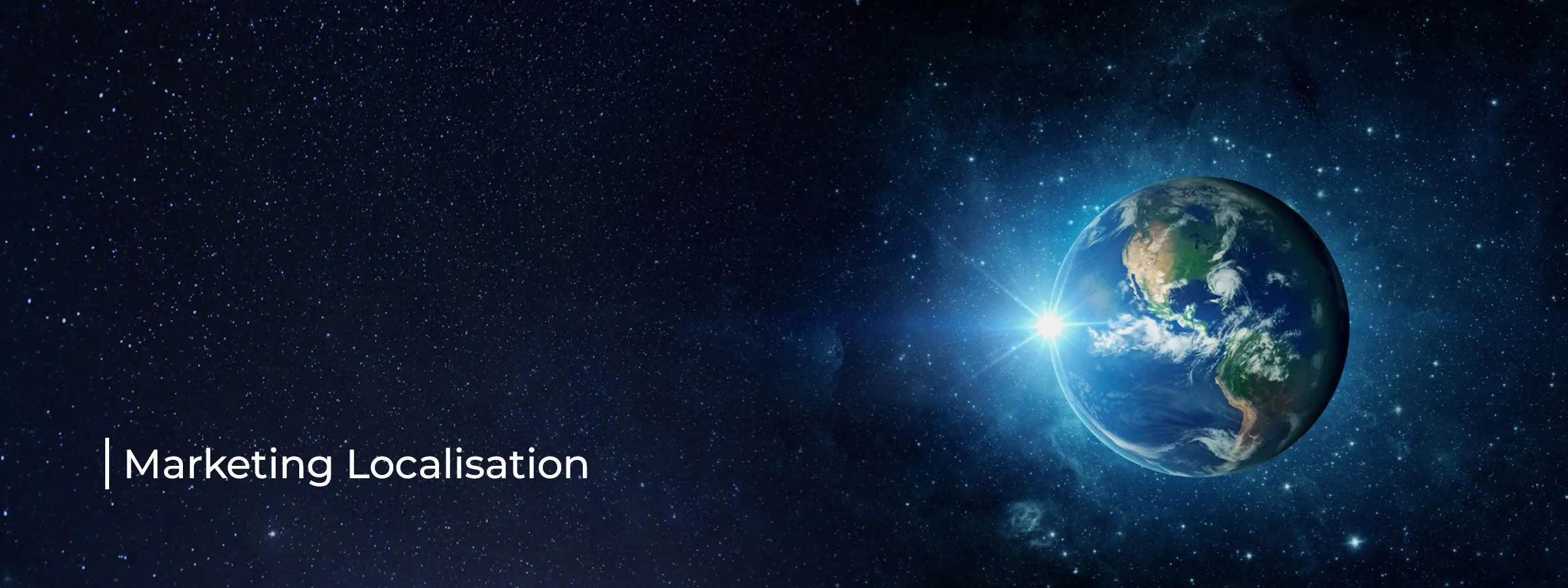Marketing Localisation
Although we live in a connected world, we still focus on local audiences first for business marketing. Investing in marketing your products and services through localisation is an impactful strategy and a purposeful decision.
Marketing localisation is the adaption of images, pricing, tone, CTA, UX, social media, and videos to enhance customer experience and expand brand reach.
The goal of Marketing localisation
The primary goals of marketing localisation are to expand the business into new territories, catch the attention of potential customers, develop trust in the brand and create business leads.
Need for marketing content localisation:
As the world economy has globalized, the need for market content localisation has increased to tap into new markets. localisation is adapting content to a specific target market, including cultural and language adaptation. This process is essential for businesses because:
- It allows businesses to communicate effectively with their target audience.
- It shows commitment toward a particular market.
- Localized marketing strategies improve the consumer experience and assist you in building relationships with your target demographic.
- The local clients who value your brand may require less incentive to place purchases with you. As a consequence, you benefit from higher conversion rates and lower ad spending.
Benefits Of Marketing localisation
localisation is the most effective technique to ensure that your marketing feels natural to new consumers and has significant business benefits.
- Increased Sales: Approximately 56% of eCommerce buyers believe having a website in their language is more important than price when determining where to buy. In the tourism business, 80% of EU people will not buy unless the information is available in their local language. These figures explain why more enterprises are localizing into more languages than ever: According to the 2017 Web Globalization Report Card, the top 25 websites in the world now support an average of 54 languages.
- Delivering a straight forward message: localisation ensures that your product or service is introduced to the market in a culturally and linguistically relevant manner. Localizing your marketing activities ensures that your product is well-represented and understood by individuals in your target market.
- Business gains a competitive advantage: There is little probability that your company is the only one in your industry. Even if it is, rivals will show up faster than you anticipate. Outrun them by localizing and expanding your marketing initiatives. Marketing localisation is a significant advantage for your company, opening up many new chances.
- Enhance brand loyalty: Localized content helps customers to understand product details and user manuals efficiently and effectively. Due to this, customers remain stuck to the brand even if equally effective alternatives are available at lower prices.
- Avoid offending potential customers: Literal translations of content result in grave errors, and sometimes they can be funny. These translation errors can offend potential customers, harming the brand and business. Properly localized content is error-free and benefits the business by customer satisfaction.
Tools for marketing localisation
The following are essential tools used for marketing localisation.
- Smartling: Smartling is a cloud-based tool used for translation management. This allows users to access content from anywhere. This allows the user to automate workflow, manage brand and reduce coding required for localisation. Smartling can also integrate with designing tools.
- Joomla: Joomla is an online content management system (CMS). This supports several tools that perform translations and localisation.
- Sitecore: Sitecore is also a content management system. It considers customer experience and helps in the localisation of marketing content.
FAQ
Ans: There are different tools like Sitemap or Joomla available for localisation. However, the best-localized content is the one produced by linguistic experts who have a knack for the language thoroughly.
Ans: Yes, there is a difference, ‘Marketing localisation’ refers to adjusting marketing campaigns to different markets, whilst ‘localisation marketing’ is the strategy that marketing teams may follow as part of their worldwide growth efforts.
Ans: White Globe is one of the best localisation service providers; it delivers localisation in 350+ languages and works in more than 500 cities worldwide. Our services combine human knowledge with computer intelligence.
Conclusion
Market content localisation is a vital aspect of any business that wants to be successful in a foreign market. It is essential to have a clear understanding of the target audience and their needs before localizing any content. With the help of linguistic experts at White Globe, it is easier to target a particular market, and businesses can ensure that their message is communicated effectively and accurately.
